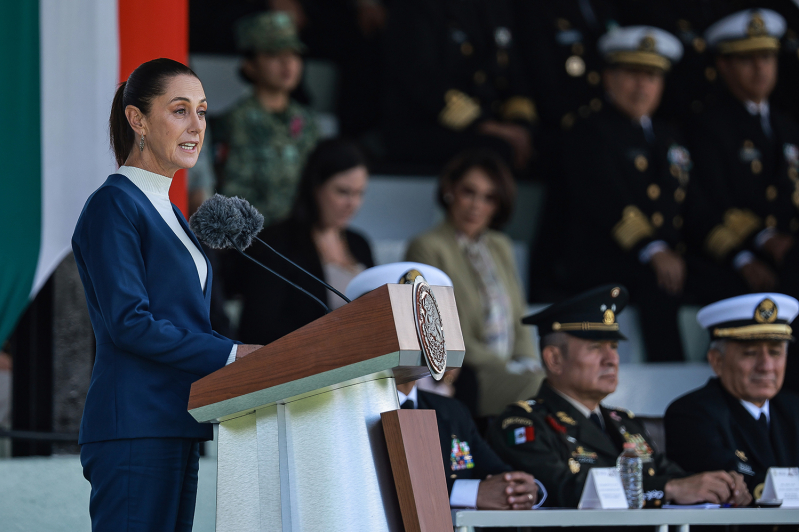
President Donald Trump’s second administration has ushered in significant changes to U.S. domestic and foreign policy, which received mixed reactions both domestically and internationally. Early reactions among Mexican evangelicals indicate support for his conservative approach but also concerns about the economic impact of mass deportations.
On the trade front, Trump announced 25% tariffs on Mexico and Canada, claiming these countries have failed to take effective action against migration and fentanyl trafficking. The drug, which the president said kills thousands of Americans each year, primarily enters the U.S. through the Mexican border.
In immigration, Trump suspended the CBP One app, which facilitated appointments for entry into the country, and canceled air entry programs for migrants from Cuba, Haiti, Nicaragua, and Venezuela. He linked illegal migration to rising crime rates and accused countries like Venezuela of sending criminals to the U.S. “These measures are about protecting Americans and ensuring national security,” Trump argued.
Trump also issued executive orders restricting diversity and inclusion policies. He declared the government will recognize only two genders based on “immutable biological reality” and eliminated programs promoting “gender ideology.” “The government will only recognize two genders, male and female,” Trump stated. Additionally, he ended federal initiatives on diversity, equity, and inclusion (DEI), calling them “unnecessary and costly.”
Mexican reaction to impending policy changes
Mexico’s President Claudia Sheinbaum responded to the tariffs by emphasizing her country’s sovereignty and warning of potential retaliatory measures. “We coordinate, we collaborate, but we never subordinate,” she said, stressing Mexico’s dignity in bilateral relations.
Diario Cristiano, Christian Daily International's Spanish Edition, spoke to two influential evangelical leaders in Mexico to get their perspective on the developments.
Lic. Aarón Lara, leader of Iniciativa Ciudadana and the Ibero-American Congress for Life and Family, criticized Sheinbaum’s policies as contradictory. “Although the discourse is nationalist and promotes the State as the guiding axis of the economy, it also expands private and foreign investment, particularly U.S.,” Lara said. He also warned that Mexico’s relationship with drug cartels could lead to stronger U.S. interventions.
On economic matters, Lic. Aarón Lara highlighted the critical role of remittances, which have reached historic levels and serve as a vital source of income for thousands of Mexican families. He warned that mass deportations could severely reduce this economic flow, further exacerbating challenges for many communities. This concern, Lara noted, is prompting Mexico to take steps to address Trump’s demands while trying to minimize the potential negative impacts.
Ommar Ayala, journalist and director of the Alliance of Christian Communicators of Mexico, highlighted the social impact of Trump’s immigration policies. “The evangelical church in Mexico will face massive deportations and a long process of adaptation,” Ayala said.
Despite the challenges, Ayala noted that many evangelicals view Trump’s policies positively. “For the vision of evangelicals, Trump’s inauguration reflects a conservative outlook that aligns with biblical values, support for Israel, and opposition to progressive agendas,” he said.
Ayala called on Christians in Mexico to respond with faith and solidarity. “It will be a titanic challenge that can only be overcome with God’s help and mutual support,” he concluded.
Originally published by Diario Cristiano, Christian Daily International's Spanish edition.





